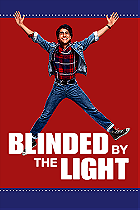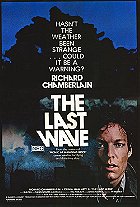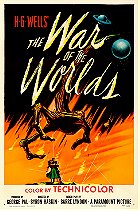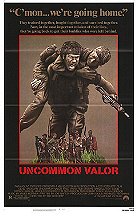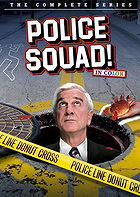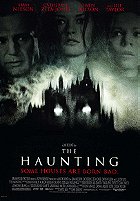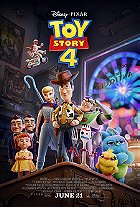After the truly awful Deep Blue Sea 2 in 2018, the prospect of another direct-to-video sequel to 1999's fun-as-hell shark flick Deep Blue Sea seemed about as exciting as a moist fart. Yet, even with a limited budget and no major stars, 2020's Deep Blue Sea 3 is a far better sequel than its immediate predecessor, and it's a more entertaining watch than anticipated. Written by Dirk Blackman (Underworld: Rise of the Lycans) and directed by John Pogue (Quarantine 2: Terminal), this threequel continues the previous movie's dangling plot thread but emerges as more of a standalone story and attempts to recapture the spirit of the original picture, albeit with mixed results. Indeed, as fun as it mostly is, Deep Blue Sea 3 is not a slam-dunk by any stretch of the imagination, as it remains wholly pedestrian from a story and character standpoint.
Working on a tiny, abandoned island known as Little Happy, scientist Dr. Emma Collins (Tania Raymonde) leads a team of researchers to investigate the effects of climate change, hoping that her findings will help prevent an environmental disaster. Assisted by Eugene Shaw (Emerson Brooks) as well as techies Spinnaker (Alex Bhat) and Miya (Reina Aoi), Emma spends most of her days diving in a fish nursery, which is also home to a great white shark named Sally. But the team is put in danger following the arrival of Emma's ex-boyfriend, Richard (Nathaniel Buzolic), who reveals that three aggressive, genetically-engineered bull sharks have entered the area. Richard leads a team of mercenaries hired to recapture these bull sharks, but tensions run high as the teams distrust each other, exacerbating the already precarious situation.
Deep Blue Sea 3's story is tied to the two previous instalments and the characters directly reference the events of its predecessors, but you do not need knowledge of either film to follow the story here, and the dire Deep Blue Sea 2 is not required viewing. Without a doubt, the least successful aspect of Deep Blue Sea 3 is the violent friction between the human characters, with needlessly corny melodrama and some over-the-top villain characters. (Australian martial artist Bren Foster, in particular, hams it up to the extreme as one of the mercenaries.) The first Deep Blue Sea is gloriously free of such narrative nonsense, instead remaining focused on the fight for survival against the intelligent sharks, but Deep Blue Sea 3 also indulges in fisticuffs to further enhance the C-movie vibe. Furthermore, it almost goes without saying, but the characters are predominantly one-dimensional and the dialogue is tin-eared, leading to problematic pacing between the shark set-pieces. With a 100-minute runtime, this is a surprisingly beefy flick, and too much time is dedicated to romantic subplots that lead nowhere.
Director Pogue gleefully embraces the cheese to stage some ridiculously amusing death scenes, including a homage to the original film's most memorable death and a decapitation that left this reviewer howling with laughter. Pogue occasionally attempts suspenseful scenes, but lacks the panache to create genuine horror or terror - it's not a patch on the original Deep Blue Sea or something like 2016's The Shallows. Additionally, digital effects are not a strong suit of the Deep Blue Sea movies, and this remains true of Deep Blue Sea 3. Admittedly, the computer-generated sharks are better than expected and occasionally stand up to scrutiny, but the digital effects mostly lack polish and reek of the movie's direct-to-video origins. If there is a Deep Blue Sea 4, are animatronic sharks too much to ask for? Added to this, the limited budget is further reflected in the cramped setting (do not expect the lavish production design of the first Deep Blue Sea) and the lack of star power, though there are some possibly familiar faces in Nathaniel Buzolic (Hacksaw Ridge, The Vampire Diaries, The Originals), Tania Raymonde (Texas Chainsaw 3D, Lost), and Emerson Brooks (Captain America: The Winter Soldier, The Last Ship). Another drawback is the forgettable score by Mark Kilian, which is not a patch on Trevor Rabin's superb music from the original Deep Blue Sea. In short, Deep Blue Sea 3 often feels like a SyFy original, but with a little bit more talent than usual.
It is difficult to recommend Deep Blue Sea 3 to any serious cinephiles or film buffs accustomed to cinema from the likes of Scorsese or Spielberg - it's certainly no Jaws. But as far as C-grade, direct-to-video killer shark flicks go, this is a sufficiently entertaining sit for those in the proper mood. It's a smarter pick than the recent 47 Meters Down: Uncaged or the unwatchable Open Water 3: Cage Dive. Even though Deep Blue Sea 3 is not memorable (aside from some absurd kill scenes) or even especially good, it's a fun enough ride while it lasts despite its flaws and predictability.
5.2/10
5.2/10
 Login
Login
 Home
Home 183 Lists
183 Lists 1674 Reviews
1674 Reviews Collections
Collections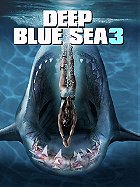


 0 comments,
0 comments, 